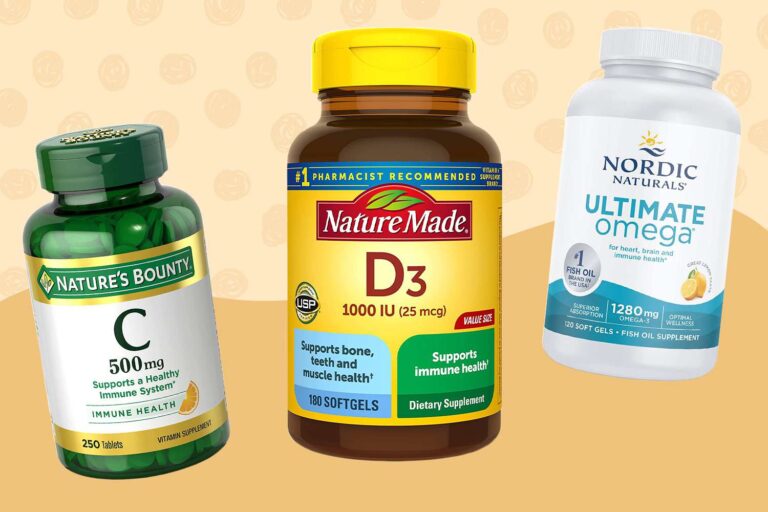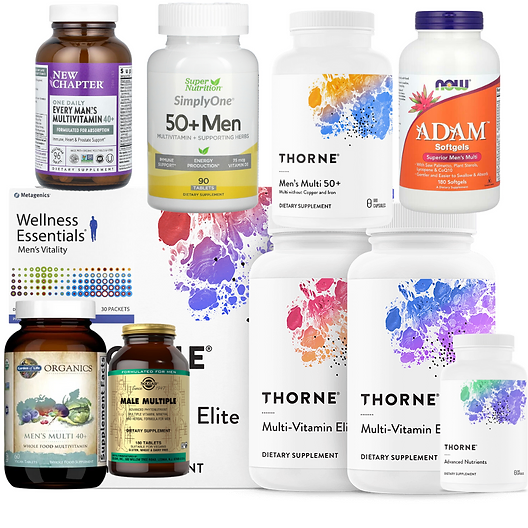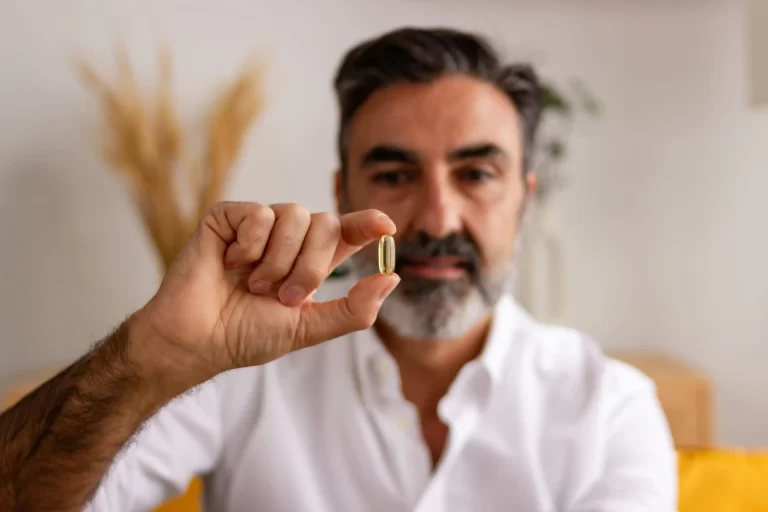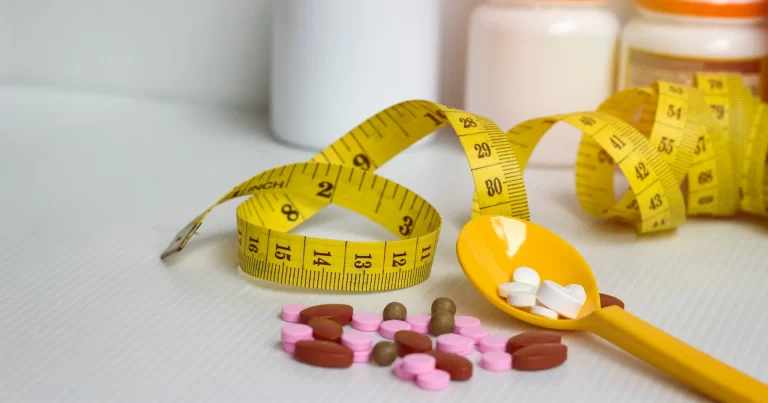What Are the Benefits of Taking Vitamins?
When was the last time you thought about your vitamin intake? Chances are, it’s not something you think about every day—but it should be. Vitamins are essential building blocks of life. They keep your body running smoothly, your mind sharp, and your immune system strong. Taking vitamins, either through food or supplements, can play a big role in boosting your health and overall well-being.
If you’re curious about how vitamins can help you and the best ways to incorporate them into your routine, this guide is for you. From benefits to practical tips, we’ll cover it all.
What Are Vitamins and Why Do We Need Them?
Vitamins are organic compounds your body needs in small amounts to function properly. They help your body perform essential tasks, like turning food into energy, repairing cell damage, and keeping your immune system strong. Think of them as the fuel your body needs to fire on all cylinders.
Your body can’t produce most vitamins on its own, which is why you need to get them from food or supplements. Without enough vitamins, your body struggles to perform its daily functions, leaving you feeling sluggish or even dealing with more severe health issues over time.
Simply put, vitamins are the unsung heroes of your health.
Benefits of Taking Vitamins
Adding vitamins to your daily routine isn’t just about filling nutritional gaps—it’s about unlocking your full health potential. Here are some of the top benefits:
1. Improved Immune System
Nobody enjoys getting sick. Vitamins like C, D, and E play a crucial role in supporting your immune system, helping your body fight off illnesses like colds and flu. Regularly taking these vitamins can reduce how often you get sick and speed up recovery when you do.
2. Enhanced Energy Levels
Feeling drained even after a full night’s sleep? B vitamins, often called the “energy vitamins,” help your body convert food into energy more efficiently. By ensuring your body gets enough of these, you can keep fatigue at bay and feel more productive.
3. Better Hair, Skin, and Nails
Who doesn’t want glowing skin, strong nails, and shiny hair? Biotin (Vitamin B7), along with Vitamins A and E, can make a visible difference in the health of your hair, skin, and nails.
4. Support for Bone Health
Calcium gets most of the credit for bone health, but without Vitamin D, your body can’t absorb calcium properly. Together, they strengthen your bones and lower the risk of fractures or conditions like osteoporosis.
5. Cognitive Function and Mental Well-Being
Vitamins do more than take care of your body—they also support your brain. B vitamins, along with Omega-3 fatty acids and antioxidants like Vitamin E, can boost memory, focus, and even mood.
Types of Vitamins and Their Sources
Understanding the different vitamins and their roles can help you make mindful choices. Here’s a quick rundown of key vitamins and where to find them:
- Vitamin A: Great for vision and skin health. Found in carrots, sweet potatoes, and spinach.
- B Vitamins (like B6 and B12): Boost energy and brain function. Found in whole grains, meat, and eggs.
- Vitamin C: Supports immunity and skin. Found in citrus fruits, strawberries, and bell peppers.
- Vitamin D: Strengthens bones. Found in sunlight, eggs, and fortified milk.
- Vitamin E: Protects your body from free radicals. Found in nuts, seeds, and spinach.
- Vitamin K: Helps with blood clotting and bone strength. Found in leafy greens like kale and broccoli.
You can get most of your vitamins from a balanced diet, but supplements can help if your schedule or preferences make it difficult to hit these targets daily.
How to Choose the Right Vitamins
The “best” vitamins for you depend on your unique needs. Here are some things to consider:
- Age and Gender
Different life stages have different vitamin needs—for example, women may need more iron, while older adults often benefit from Vitamin D and calcium.
- Lifestyle and Goals
Are you active? Then you might need extra magnesium or potassium to support muscle recovery. Stressed? Try B-complex vitamins for better stress management.
- Health Considerations
Always check with a healthcare provider before starting a new supplement. They can help assess your dietary gaps and potential interactions with medications.
The Risks of Vitamin Deficiency and Overdose
While vitamins are vital, balance is key. Too little or too much can have consequences:
- Deficiency
Symptoms like fatigue, weakened immunity, brittle nails, or memory issues may signal you’re not getting enough vitamins. For example, Vitamin C deficiency can lead to scurvy, while not enough Vitamin B12 can cause anemia.
- Overdose
On the flip side, taking excessive amounts of certain vitamins (like Vitamin D or A) can cause toxicity, leading to headaches, nausea, or long-term health hazards. That’s why following recommended doses is important.
The key? Moderation and professional advice.
Incorporating Vitamins into Your Daily Routine
Making vitamins a part of your lifestyle doesn’t have to be overwhelming. Try these tips:
- Plan Balanced Meals
Include a variety of colorful fruits, vegetables, and proteins in your meals to cover your nutritional bases.
- Consider Supplements When Needed
Busy day? A high-quality multivitamin can give your body a boost on days when healthy eating feels impossible. Not sure which one to pick? Brands like NatureMade and MegaFood are respected and effective.
- Create Consistency
Take your vitamins at the same time daily. Pair them with a meal to boost absorption and help you remember.
- Try Simple Recipes
For more variety, whip up meals that pack a nutritional punch. Think spinach and feta omelets for Vitamin K or salmon with roasted veggies for Omega-3s and Vitamin D.
- Track Your Progress
Use apps or journals to log your vitamin intake and see how it impacts your energy, mood, and overall health over time.
Take Charge of Your Wellness Today
Your health is your wealth, and vitamins are a powerful tool to protect and enhance it. From better immunity to glowing skin and sharper focus, the benefits are undeniable. Start small by evaluating your current diet and identifying gaps—then go from there.
Remember, it’s not about perfection but progress. Take those first steps toward a healthier, more energized you.
Have questions or favorite vitamin tips to share? Join the conversation and share this post to inspire others in your wellness community!







